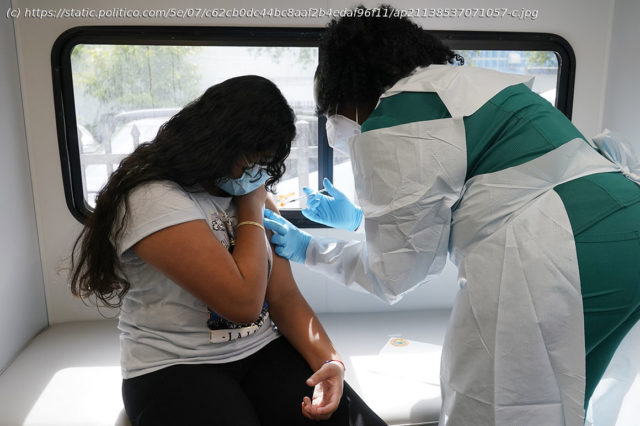The FDA’s independent vaccine advisory committee grappled with how to ensure the safety of Covid shots in children as disease caseloads continue to dwindle in the U.S.
With Covid-19 vaccines authorized for adults and teens, shotmakers and regulators are turning their attention to ensuring that the vaccines are safe and effective for younger children. The FDA’s independent vaccine advisory committee grappled Thursday with how to ensure the safety of Covid shots in children as disease caseloads continue to dwindle in the U.S. Of the three Covid-19 vaccines that have been authorized in the U.S., only one from Pfizer-BioNTech has been endorsed for emergency use in 12- to 17-year-olds. Moderna applied Thursday for authorization for its shot in adolescents aged 12 to 15. None are yet available for younger kids. Here are the three main issues the FDA panel considered at its meeting: The committee mainly focused on assessing whether the vaccines are safe for children, and the potential protective gains to kids and society as a whole if they are ultimately put into use for the youngest Americans. One big consideration for regulators: Children’s developing immune systems appear to react to Covid-19 differently than do those of adults. Kids are generally less likely to develop severe Covid-19 than are adults — but a small percentage develop a serious inflammatory syndrome called MIS-C that adults do not. Over 300 children in the US have been hospitalized from the disease, and recent data from the Centers for Disease Control and Prevention show that hospitalizations are increasing. Children under 5 and teens have higher rates of hospitalization than kids 5 to 11, according to federal data. “We’re going to have to have a highly vaccinated or highly immune population for years, if not decades, and it just seems silly to think we’re not going to have to include children as part of that,” said Paul Offit, a pediatrician at the Children’s Hospital of Philadelphia. Others were more cautious.






